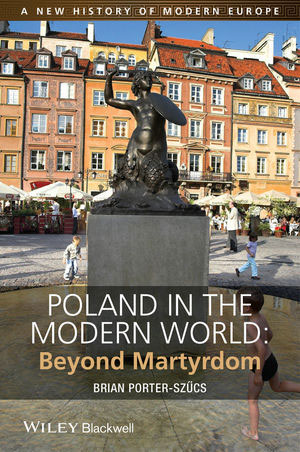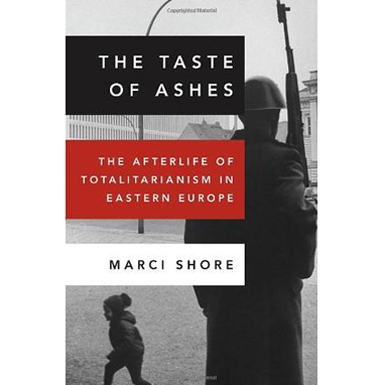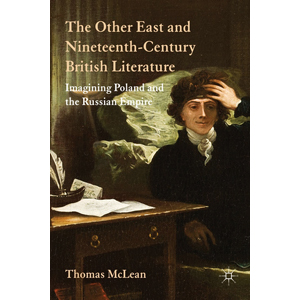 Poland in the Modern World: Beyond Martyrdom
Poland in the Modern World: Beyond Martyrdom
By Brian Porter-Szűcs
Wiley-Blackwell; 2014
There is no doubt that Poles like to write about their history. A recent study conducted by the Oxford Internet Institute has shown that Poland has one of the highest numbers of historical entries in Wikipedia, the global repository of user-generated content. Indeed, Poland had produced as many entries as the United States, Russia, Germany and the United Kingdom. One could infer that Poles are somewhat fixated on their history. No self-respecting Polish family can gather around a holiday table without at least one emotionally-driven discussion of some aspect of Poland’s history. The writing and rewriting of the national master narrative has become a favourite national pastime, even if, as recent polls suggest, Poland’s “Generation Z” is not as interested in the past as were their parents.
Poland’s post-1989 period was characterized by intense revisionism—a need to reclaim, to cleanse, to resurrect, to vilify, to right the wrongs. In a recent assessment of post-Communist Polish historiography, Padraic Kenney asserts that historians can now move beyond simply filling the “blank spots” (białe plamy), identifying the forgotten protagonists, and straightening distorted interpretations. Over the last quarter century, much effort has been placed in the rewriting of the Polish national master narrative. But the resulting picture often boils down to a discussion of a series of unfortunate and painful episodes mostly triggered by powerful foreign neighbours that have perpetually tried to enslave a courageous people. Such a trope was a natural reaction to the Marxist limitations that had earlier dictated a particular vision, and Polish historians cannot be blamed for allowing the revisionist pendulum to swing in the opposite direction.
Nonetheless, the time has come to move beyond a litany of sorrows and grievances, and beyond an understanding that centres on exceptionalism—that Poland’s story is far more painful than most. This does not denote a whitewashing of history or downplaying people’s suffering. Rather, it entails a comparison of all the good and bad experiences of a people in a broader European and even a global setting. Poland’s tale over the last two centuries has been tumultuous but has it been worse or better than the story of many other states or nations? Is there any value in such comparisons? Fortunately or not, the nation will remain the basic unit of historical analysis, but more recent methodologies, which emphasize comparative approaches, have allowed history to rise above national historiography. Rest assured, this is no simple feat.
Brian Porter-Szűcs’ Poland in the Modern World: Beyond Martyrdom is the latest survey of modern Polish history. But do we really need another book devoted to the history of Poland? Have Norman Davies, Mieczysław B. Biskupski, and Jerzy Lukowski and Hubert Zawadzki (to name a few) not produced strong examinations? Moving in a new direction, Porter-Szűcs’ work adds an important and distinct voice to the fray. It is a genuine attempt to look at Poland’s history through that new prism of a transnational spirit. It forces us to look at history in different ways—from the outside in, from the bottom up—and to rethink it in significant ways. Ultimately, at times, it challenges us to reconsider the existing master narrative.
As the subtitle proclaims, Porter-Szűcs rejects the clichés of Poland’s martyrdom or stereotypical depictions. Poland is portrayed as neither a land of the valiant peasant nor a hotbed of anti-Semitism. It is merely an ordinary state in a “vaguely defined space” (1). Poles are not a homogeneous nation, but a diverse group whose identity evolved over time. Porter-Szűcs goes out of his way to show the many ways in which Poland was extraordinarily unexceptional. Indeed, the book’s subtitle could be a repeated line from the book: “This wasn’t a uniquely Polish problem.”
George Orwell once quipped that “nationalism is power hunger tempered by self-deception.” Porter-Szűcs agrees. Rather than centering on Poland’s struggle for independence against unsurmountable forces, he is more interested in Polish nationalism’s many faces. His account is not focused on the state or political decisions at the highest level. Indeed, one of his aims is to discard old labels, categories and classifications. People from various classes, with confusing ethnic identities and religious beliefs, and with conflicting personal interests are the main protagonists. Important personalities are not neglected, but new, less known actors are introduced.
Those looking for a comprehensive discussion of Poland’s history from the partitions to the present will not be fully satisfied. Although the introduction promises to explore the last two centuries of the country’s history, less than a fifth is devoted to the 19th century. Yet, this underdeveloped exploration of partition period is more than made up for in its thorough examination of the 20th century. Three strengths make this book a thought-provoking, meaningful and important read.
Porter-Szűcs’ greatest forte lies in his comparative value. In this new framework, Poland loses its exceptionalist tradition and becomes merely one amongst others who struggled (and struggle) with broad continental and global phenomena. The Polish intelligentsia is thrown together with Europe’s other dislocated intellectuals who were frustrated with and angry at modernity. The heroic Matka-Polka (Mother-Pole) is just a variation of the 19th century bourgeois model of femininity. The mythical Piłsudski is compared to Latin American military dictators. Throughout the study, Poland’s fate is always reflected through a regional, continental or global prism. The Great Depression was awful everywhere, but even more so in Poland. The Stalinist period, on the other hand, and perhaps contrary to popular belief, was less damaging and violent in Poland than in many of her Eastern European counterparts, especially in terms of the more extreme forms of state-sponsored violence. Similarly, when dealing with the economic problems of the People’s Republic of Poland, Porter-Szűcs refuses to point a finger squarely at Communism. Instead, he offers an image of a developing state undergoing a process of modernization, while pointing out that it is impossible to separate growing pains from ideological preconceptions.
The second most valuable dimension of the survey rests in Porter-Szűcs uncanny reflections—some humorous while others quite serious—on some of Poland’s forgotten, dismissed or controversial moments. Interestingly, a quantitative comparison of the damage inflicted on Polish territories by the First and the Second World Wars reveals surprising numerical similarities despite the former being completely overshadowed by the latter in the national collective memory. Such statistical musings often break apart preconceived historical truths, as when he reveals that in the mid-1940s to the mid-1950s, the state of California conducted more judicial executions than had the PRL.
How Polish history is remembered is another critical and poignant running theme of the book. For instance, after a brief but sophisticated analysis of ethnic cleansing on all sides during the Second World War, he further highlights the powerful implications of “forgetting” and “remembering” in a section on contested memories. Refusing to pronounce judgment, he simply says that “there are no heroes in this story.” But this process of collective memory is carried all the way to the contemporary post-Communist political discourse of the Third Republic. Porter-Szűcs effectively shows how one of the right-wing parties—Law and Justice (Prawo i Sprawiedliwość)—relies heavily on this polityka historyczna (historical politics/policy). History remains the lingua franca of many Poles.
Many ardent patriots will criticize Poland in the Modern World’s dispelling of Poland’s grand myths. But even though they will disparage its rejection of Poland’s popular exceptionalist identity, they will not be able to deny Porter-Szűcs’ claim that Poland has achieved what it always desired—to be recognized as any other European state.
CR




Pingback: Welcome to our 2014 Fall-Winter Issue!
Pingback: Fall-Winter Version of the Cosmopolitan Evaluate | Posts